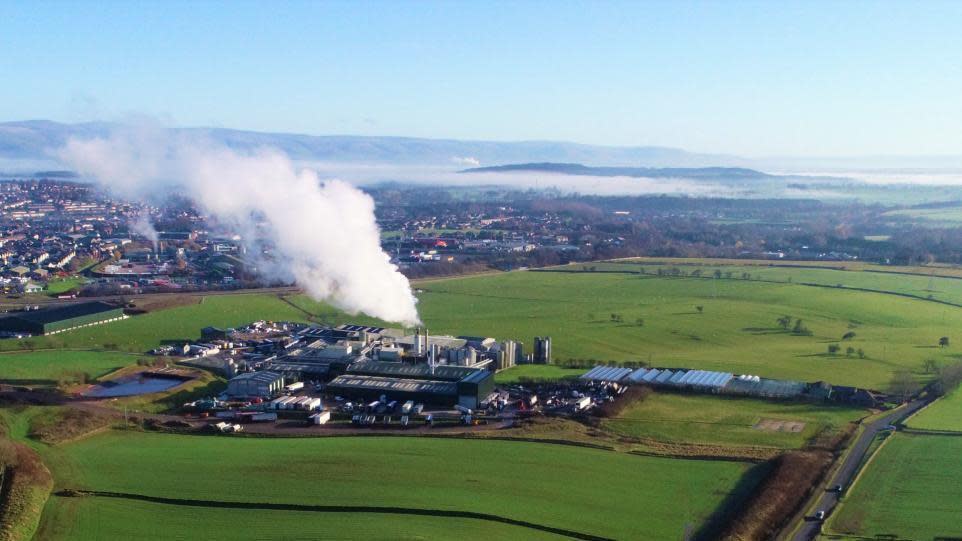Approval for 'decarbonised' factory heating loop

Plans to provide a heat network to connect sites linked to an animal rendering plant have been given the go-ahead.
Westmorland and Furness Council approved proposals from Omega Proteins in Penrith to construct a loop connecting Sewborwens Farm and Newton Rigg Estate.
It would carry hot water, returning it to the heat source where it is recharged and recirculated.
A report to the council said surplus heat at the site "is used to warm office and administrative buildings", with a significant amount wasted.
It added: "The proposed district heating system seeks to make best use of this surplus to form the basis of a wider district heating system."
'Wider potential'
The proposed pipeline would be a "sealed loop system" of about 2,100 metres (6,900ft) in length, and would run underground, according to the Local Democracy Reporting Service.
According to the planning statement submitted by the company, the scheme proposed in Penrith would "decarbonise" heating at Sewborwens Farm and Newton Rigg Estate.
It added the heat network would demonstrate the "wider potential" for a heat network to be established in the town to serve housing, employment and other users.
It said: "The construction of heat networks is recognised as a crucial part of how the UK will reach its net-zero targets as one of the most cost-effective ways of decarbonising heating, uniquely able to tap into otherwise inaccessible large-scale renewable and recovered heat sources, including waste heat from industrial installations like Omega."
Follow BBC Cumbria on X (formerly Twitter), Facebook and Instagram. Send your story ideas to northeastandcumbria@bbc.co.uk.


